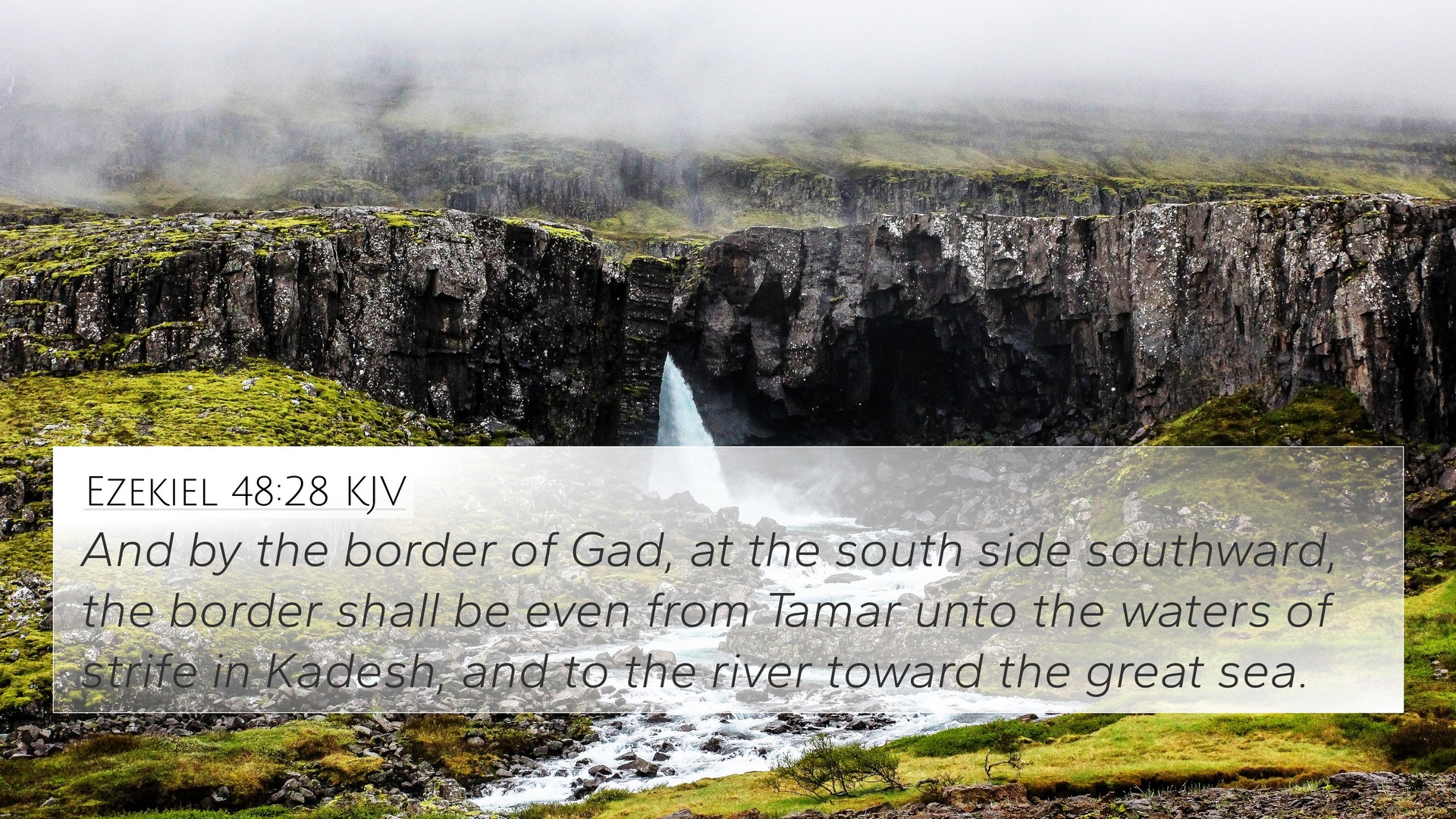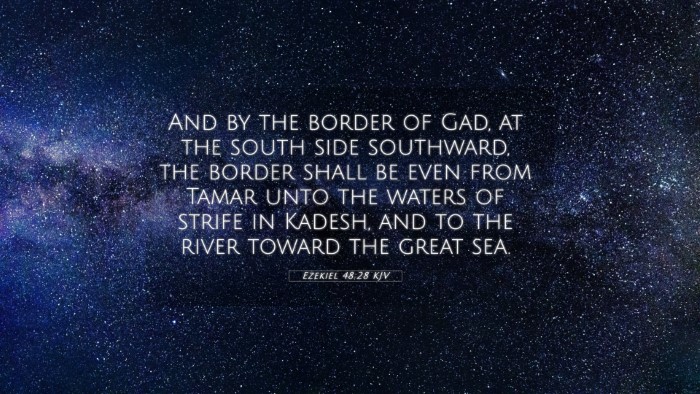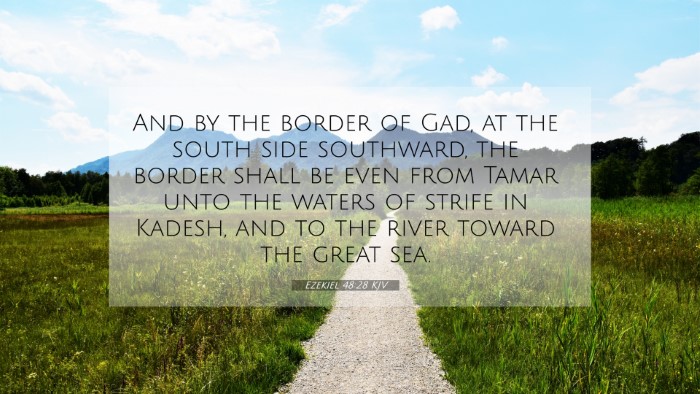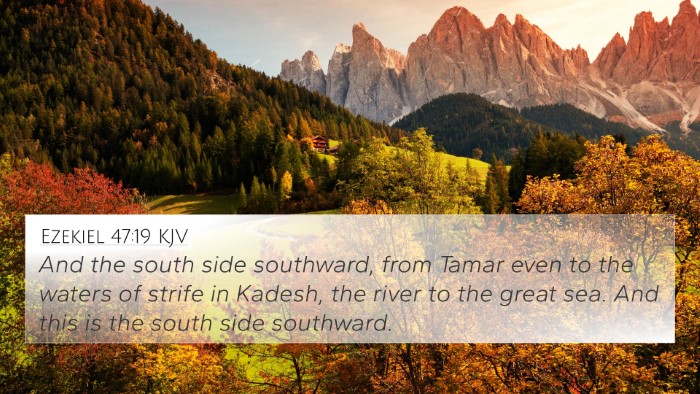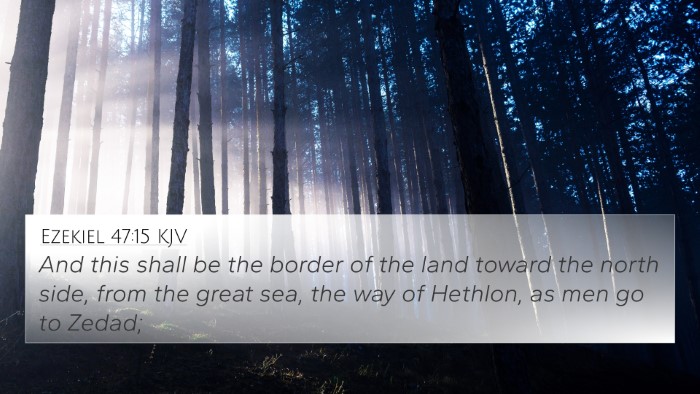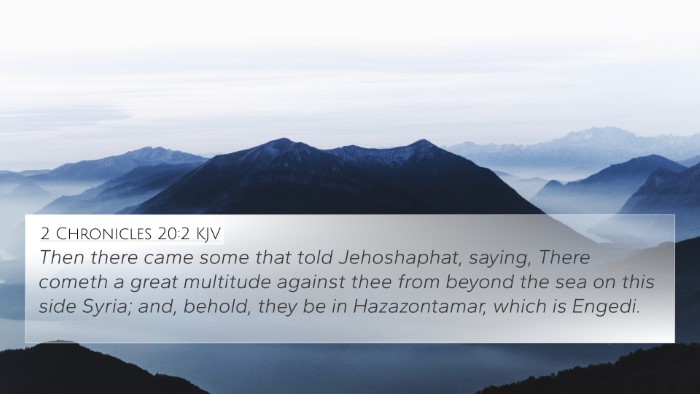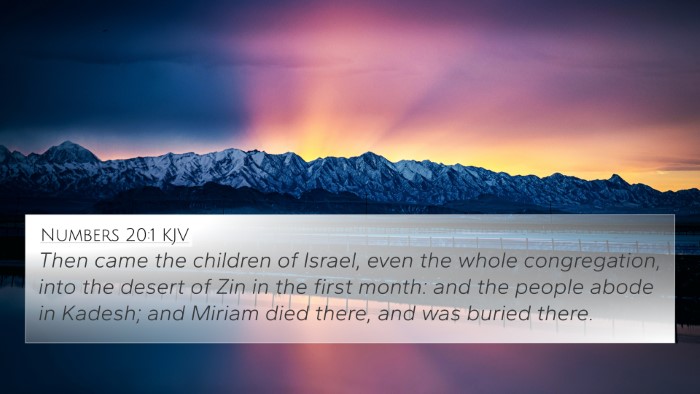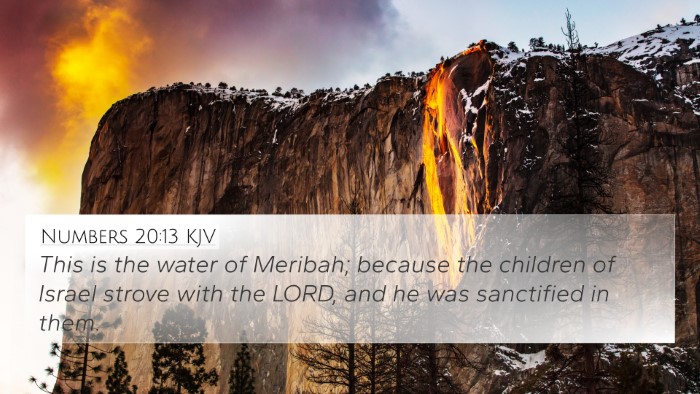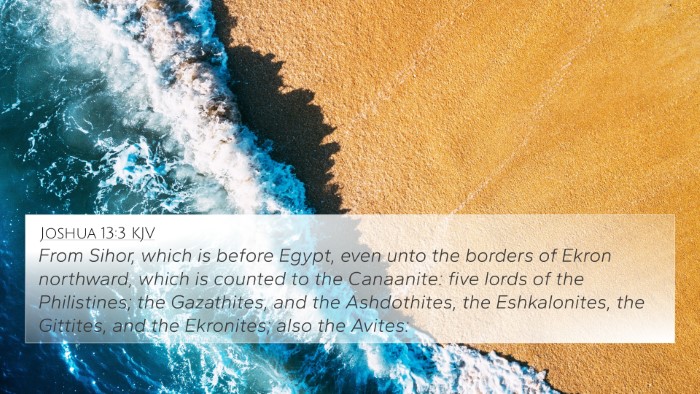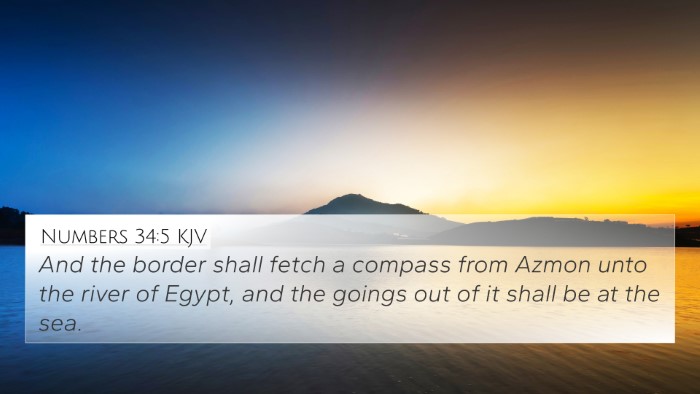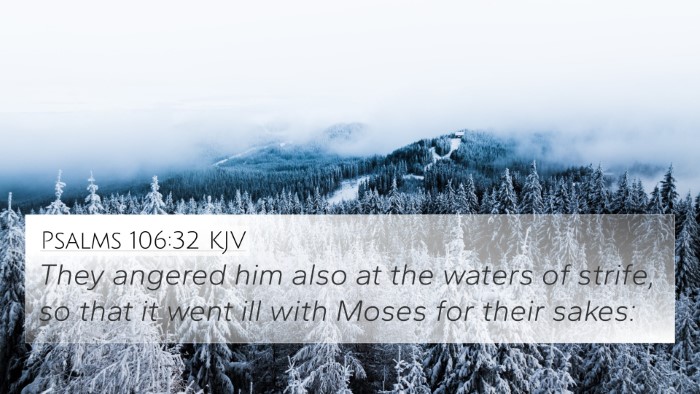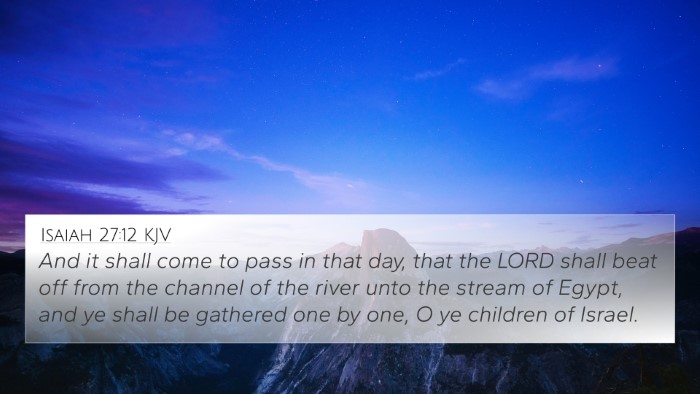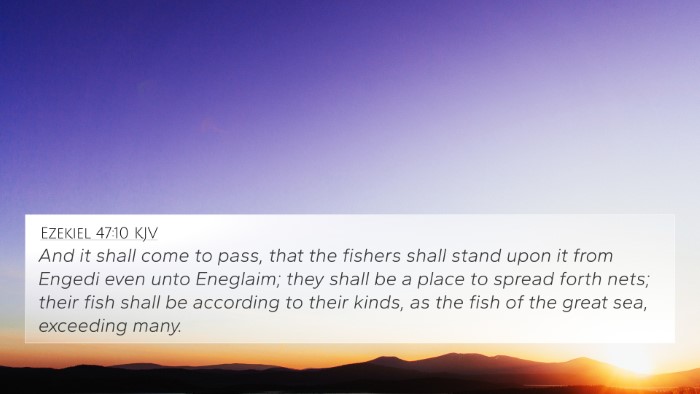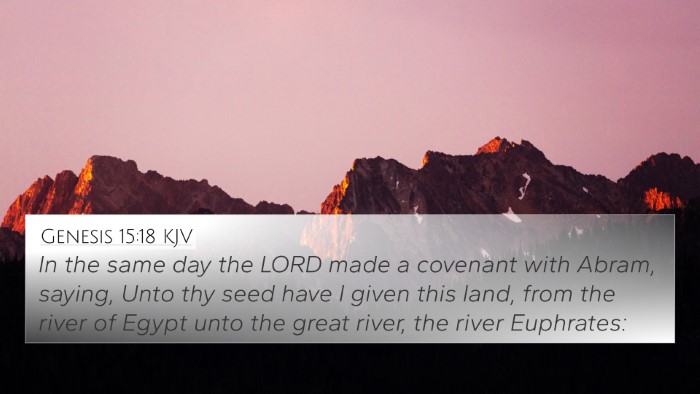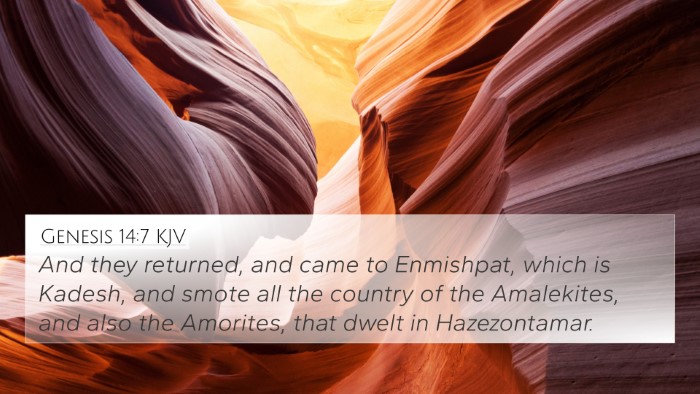Ezekiel 48:28 - Verse Meaning and Interpretations
Ezekiel 48:28 reads as follows: "And by the border of Gad, at the south side southward, the border shall be even from Tamar unto the waters of Meribah Kadesh, even to the river of Egypt, and the great sea." This verse concludes the detailed layout of the land division for the tribes of Israel as envisioned by the prophet Ezekiel.
Context and Significance
This passage is part of a larger vision given to Ezekiel regarding the restoration of Israel, particularly during the time of the millennial reign. It emphasizes the geographical allocation of land to each tribe and signifies God's promise of territorial restoration to His people.
Commentary Insights
Insights from various public domain commentaries shed light on the meaning of this verse:
- Matthew Henry: He explains that the specific borders given here are indicative of God's meticulous planning in assigning land to each tribe. It highlights God's sovereignty, reinforcing that He holds the rightful ownership of the land and distributes it according to His divine purpose.
- Albert Barnes: Barnes notes the importance of these geographical markers. He underscores that the borders signify completeness in God's promises and emphasizes the inclusion of Gad's territory as vital in the overall scheme of Israel's restoration.
- Adam Clarke: Clarke emphasizes the historicity of these locations and their significance in the life of Israel. He elucidates that the borders remind the people of their heritage and God's enduring promise, suggesting the waters of Meribah and the river of Egypt as critical landmarks in Israel's history.
Connections Between Bible Verses
To better understand Ezekiel 48:28, one can consider several Bible verse cross-references that provide thematic and contextual insights:
- Numbers 34:8-12: Description of boundaries for the Promised Land illustrates God’s detailed guidance concerning Israel’s inheritance.
- Joshua 13:24-28: Discusses the inheritance for the tribe of Gad, paralleling the descriptions in Ezekiel.
- Psalms 78:68-69: Speaks of God's choice of Zion and God's provision of land, connecting the theme of divine inheritance.
- Jeremiah 31:5: Highlights the restoration of Israel and mentions vineyards, resonating with themes of renewal present in Ezekiel.
- Isaiah 11:12: Foretells the gathering of the dispersed Israelites, linking back to the promises of land and gathering in Ezekiel.
- Ezekiel 47:13-20: Earlier commentary on the division of the land, reiterating God’s instructions and promises made to the tribes.
- Revelation 21:2: Symbolically speaks of a new Jerusalem, adding a eschatological dimension to the promise of inheritance.
Understanding Through Comparative Bible Verse Analysis
This verse, along with its cross-references, exemplifies a broader theological truth about God's faithfulness in fulfilling His promises. By cross-referencing these texts, one can see the connections between Bible verses and the overarching narrative of redemption and restoration that permeates Scripture.
Tools for Bible Cross-Referencing
To delve deeper into how to find cross-references in the Bible, consider employing the following resources:
- Bible Concordance: A helpful tool for locating words and phrases that link various scriptures.
- Bible Cross-Reference Guide: Designed to highlight connections across different books and chapters.
- Cross-Reference Bible Study: Engaging in a methodical approach to studying scripture in relation to one another.
Practical Applications
Understanding the implications of Ezekiel 48:28 through cross-referencing enhances one's study of the Bible. It can serve as a valuable method for sermon preparation, personal study, and enriching one's knowledge of the scriptures. When conducting a comparative study of Pauline epistles or analyzing Old and New Testament parallels, this approach fosters a deeper appreciation for the tapestry of biblical themes and teachings.
Conclusion
In conclusion, Ezekiel 48:28 not only serves as a historical record of land division but also provides profound insights into God's faithfulness to His promises. By engaging with the inter-Biblical dialogue and exploring Bible verses that relate to each other, believers can anchor their faith in the reliable and connected narrative of scripture.
Thus, the study of this verse through cross-referencing encourages believers to understand their heritage, appreciate God's meticulous planning, and remain hopeful for the fulfillment of His promises.
